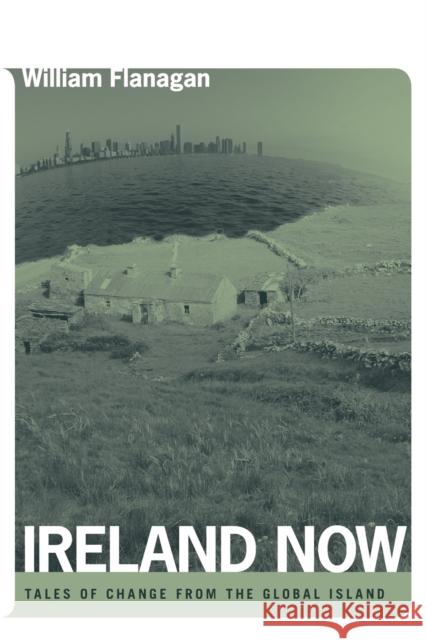Ireland Now: Tales of Change from the Global Island » książka
Ireland Now: Tales of Change from the Global Island
ISBN-13: 9780268028862 / Angielski / Miękka / 2007 / 288 str.
"Ireland Now" is an accessible guide to understanding how Ireland and the Irish people have changed during the past fifteen years. Largely as a result of the country's rapidly expanding economy, Ireland has been transformed from one of the poorest to one of the richest countries in the European Union.William Flanagan uses personal, first-hand stories from a wide range of Irish citizens, including the elderly, farmers, people in small towns and rural areas, and new immigrants, to illustrate how various segments of the population are coping with a shifting social landscape.Flanagan skillfully weaves his stories of real people together to reflect themes of promise and loss attached to economic upheaval, the struggle to maintain traditional ways in the face of new social and moral orders, the effort to adapt to a country with an enhanced place in the world economy, and the challenge of remaining at home as the meaning of home becomes forever changed.Based on years of Flanagan's personal experience and careful research in Ireland, this important book examines the nature of Irish character and the fusion of tradition and change. It will appeal to anyone with an interest in Ireland and Irish identity. William Flanagan has provided us with a terrific introduction to contemporary Ireland, its peoples, and its complex identities. At the heart of this highly original interdisciplinary study is the nuanced Irish voice speaking in multiple ways, and at various registers, of everyday life in Global Ireland. Eamonn Wall, Jefferson Smurfit Professor of Irish Studies, University of Missouri-St. Louis This book is valuable because it digs beneath the endlessly repeated litany of the rapid changes in modern Ireland, such as globalization, the Celtic Tiger, Fourth highest per capita GDP in the world, church in decline, educated young people, and the list goes on. "Ireland Now" lays out the changing Ireland framework and the goal of finding how it plays out in the everyday life of the people in the book. Readers in sociology, cultural anthropology, and political science will find or recognize the pressures on people located in a kaleidoscopically changing environment. Richard B. Finnegan, Stonehill College"











